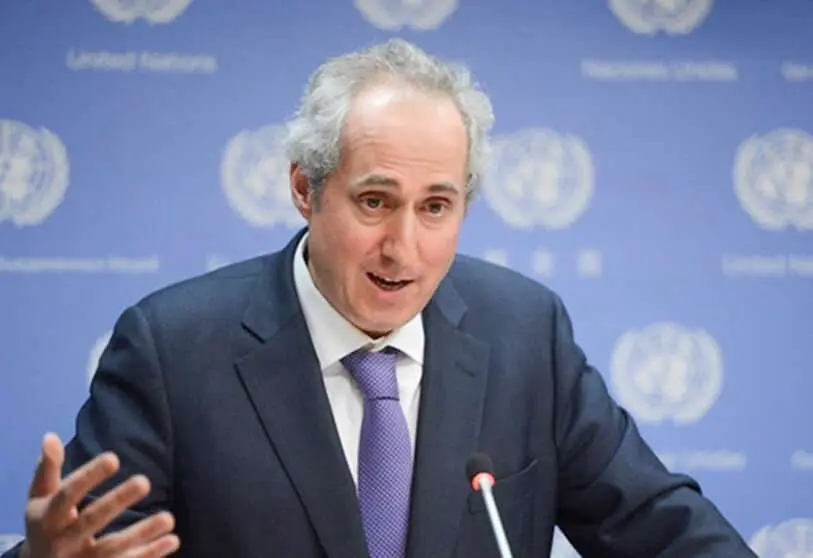UN deploys 1.7 billion euro aid plan for Sudan

Sudan is in a state of perennial crisis. For decades, the African country has been going through a series of political and territorial conflicts that have resulted in bloody wars and institutional instability. These causes are hampering the country's development. To alleviate the situation, the United Nations Office for the Coordination of Humanitarian Affairs (OCHA) has unveiled its humanitarian response plan for Sudan, which amounts to around 1.7 billion euros.
This was announced on Monday by the UN Secretary-General's spokesperson, Stéphane Dujarric. "Today we have launched the 2022 Humanitarian Response Plan, which aims to reach 10.9 million vulnerable people at a cost of $1.9 billion. Almost half of these funds will go to life-saving activities," he said. Support will focus on health, disease prevention and treatment, education and access to water.
Sudan is experiencing an increase in humanitarian needs in response to "the recession that began in 2018, acute food insecurity, conflict, large-scale displacement, natural hazards and reduced social service delivery and capacity to respond to disease outbreaks, including EVID-19," according to the UN spokesperson. These factors, coupled with the failure of the political transition and open hostility between ethnic groups, have stalled progress.

OCHA published a report on the situation in Sudan in December detailing its action plan. The organisation will focus its efforts on the more than three million internally displaced persons and one million refugees who have been forced to flee their homes because of increased inter-communal violence, especially in the states of West Darfur and South Kordofan, areas where Arab and African tribes have been engaged in bitter clashes. These worrying figures destabilise the region.
Sudan has so far received 37 per cent of the funds earmarked by the UN. Of the 1.7 billion euros included in the organisation's programme, the Sudanese state has more than 625 million euros in its accounts. 625 million in its accounts. These funds are directed towards the 14 million people in need of humanitarian aid out of a total of 43 million people in the country. The numbers are even worse than those recorded in 2021 because, contrary to forecasts, the government has not been able to put the desired economic recovery on track.
Sudan's deep economic crisis brought with it a rise in inflation, which prevented the bulk of the Sudanese population from accessing basic supplies such as food and medicine. The slow pace of reform by Prime Minister Abdalla Hamdok's cabinet increased discontent and soon led to protests against the government in several parts of the country, including the capital, Khartoum. This climate of hostility was seized upon by senior military commanders to overrule civilian members of the government and launch a coup d'état.
The 25 October uprising reversed the Juba agreement, signed in 2019 by the army and the Forces for Freedom and Change. That pact established an unprecedented sharing of executive power between the military and civilians, represented by a coalition of parties, through which General Abdel Fattah al-Burhan became president and the economist Abdalla Hamdok took the reins of government. The agreement set an election date of 2023, by which time the army would cede control to civilian society.

The international community stepped in to stop the coup. The action of organisations such as the World Bank and the International Monetary Fund, which threatened to cut off funds to the state, made the army back down and return the civilian government headed by Hamdok, who was arrested during the coup. However, his recent resignation opens a new chapter in Sudanese politics, which will have to renegotiate the 2019 agreements.
The UN has begun to implement its humanitarian aid programme and is committed to moderating the dialogue between the military and civilians in order to find a new way out of the crisis. The head of the UN mission in Sudan, Volker Perthes, proposed in the framework of the UN Integrated Transition Assistance Mission in Sudan (UNITAMS) that the army and political platforms sit face to face to draw up a new roadmap for the country.
The self-proclaimed president of the Sovereign Council, Abdel Fattah al-Burhan, welcomes the proposal, but the grassroots have accused the UN of legitimising the army's coup by accepting it as a valid interlocutor. In the hypothetical dialogue, attention should also be focused on the recurrent episodes of inter-ethnic violence in the western region of Darfur and the growing territorial insecurity. This is a territory where government action has failed to reach.









